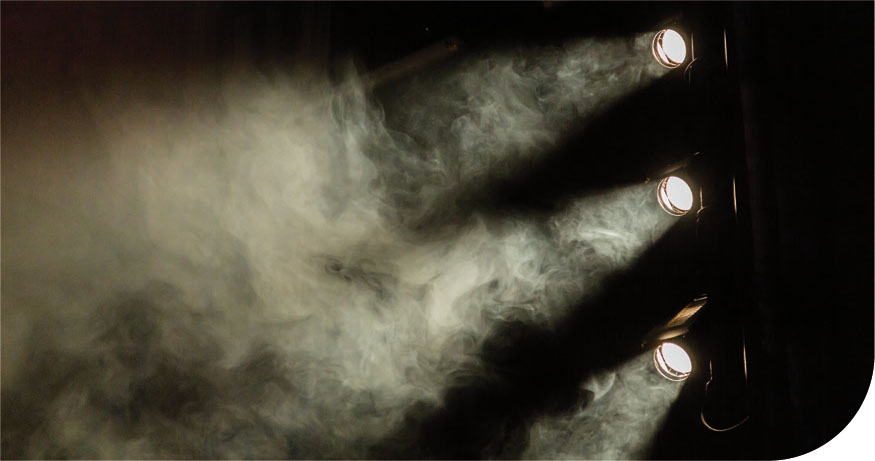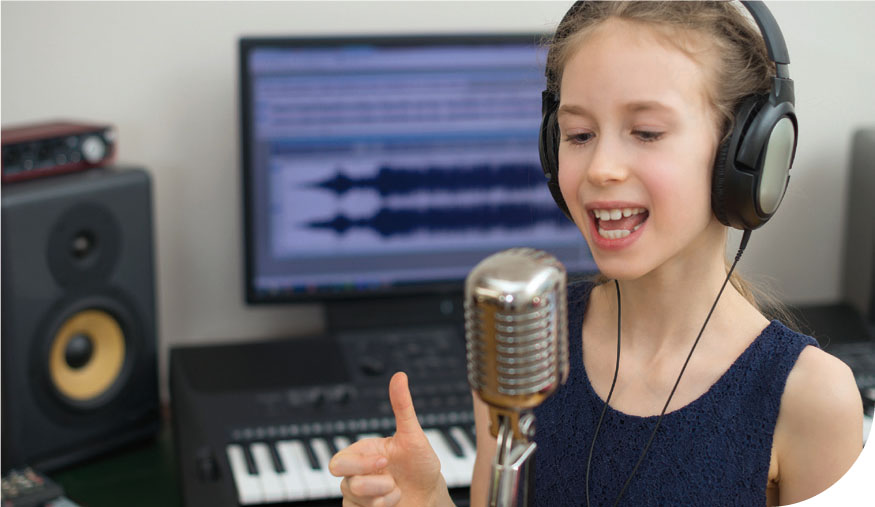
Back in 2018 when ABRSM announced it was offering Singing for Musical Theatre grades, my first thought went to my two budding Broadway star children (eight and nine at the time), both prone to breaking into a show tune at the drop of a (sequinned) hat. At the time, Grade 3 was the highest grade on offer, so the nine-year-old did that and her little sister did Grade 1. That year was the year of watching all the musicals, so the pair of them, already competent violinists, sailed through their in-person exams with distinctions, thanks to the dedication of their violin teacher's piano skills and a lot of excitement on my part.
The structure is fairly similar to an instrumental ABRSM exam with three set pieces and, instead of scales, one unaccompanied piece from the syllabus. The offering for the lower grades is a really joyful mix of modern and new musicals, and we had a lot of fun choosing our selections (Grade 1 examples include ‘Truly Scrumptious' and ‘Where is Love?’ and Grade 3 includes ‘Feed the Birds', ‘I Know it's Today’ from Shrek and ‘Un Poco Loco’ from Coco). My daughters are resolutely old-school, so they opted for the Mary Poppins, My Fair Lady and Oliver! end of the offer, but the overall syllabus is broad and eclectic.

© ndrey lapshin/AdobeStock
Since that time, barely a week would go by without one of them asking when the higher grades were going to be released. I must also admit that a large proportion of the excitement was coming from me. A keen violinist, singer, and trumpeter, I'd decided that I might try my hand at Grade 5 when it was available – just to see if I could. I'd always fancied myself as the next Ethel Merman, so I decided to take the plunge myself.
Fortune favours the brave
The new syllabus was announced in lockdown, and we decided to have a go at entering the online performance exams. As I looked through the syllabus, my eye was drawn to the Grade 8 offering and I simply couldn't resist. It was essentially a list of my favourite songs: ‘Everything's Coming up Roses' from Gypsy, ‘Don't Rain on my Parade’ from Funny Girl, ‘Climb Ev’ry Mountain’ from the The Sound of Music and ‘What Good Would the Moon Be?’ from Street Scene.
Predictably, as you go up the Singing for Musical Theatre grades, the songs become more obscure. This is a little frustrating and, beyond the Street Scene song, I might have struggled to find a ‘List A’ piece that I really connected with. However, it's hard to know how else the assessment could work. Similarly, as the girls go up the grades, the pieces get more mature and we're going to have to choose carefully. For example, Grade 5's ‘Don't Cry for Me Argentina’ is a great song to sing, but for a 10-year-old, not so much. I also had a minor panic when I realised that I'd chosen two pieces by Jule Styne (two is the limit for any one composer).
If nothing else, the chance to force a friend to record piano parts for me so I could pretend to be Mama Rose for a couple of hours a week was an opportunity I couldn't pass up. The children decided to do Grades 4 and 2 respectively, and, summoning all my reserve, I filled in the Grade 8 form. Then I sort of forgot about it – well, mine at least.
Children will listen
The children began work in earnest. There was very little else to do in lockdown. ABRSM Performance grades are all entered and assessed online, and we were required to provide an accompaniment. These could be live and in person, but at that time we couldn't meet inside so our friend recorded the piano parts for all songs for both children (and me) and we (well, they) set about practising every day. In addition, instead of an aural test, there's simply a fourth song requirement. So far, so good.
Except…I am very good at encouraging my children to practise. We merely built it into their daily academic work. I am less good, however, at encouraging myself to practise, telling myself that I would take some time off nearer the exam to ‘really focus on it’, but instead spent a lot of time listening to the songs and wondering what on earth I had got myself into. The last music exam I took was my Grade 6 violin exam in the ‘90s and I have been successfully postponing my Grade 7 ever since.
In the absence of any qualified teachers, my eight-year-old stepped in, encouraging me to sing through the pieces in front of them both, (terrifying), and offering notes. This process was a useful one, as much for them as me, helping them see what works for them as an audience and what not to do (in my case, grimace when I hit the high notes or wave my hands around too much).
With a little bit of luck
As anyone who's spent the last 18 months trying to do online music knows, recording stuff well is hard. Particularly in a musical theatre performance, engagement with the audience is essential and my oldest child really feeds off whoever she's performing to. I, on the other hand, felt incredibly relieved that I wouldn't have to physically stand in front of another adult and sing for points, so I was delighted. I just needed to get off my backside and actually practise without feeling self-conscious.
However, the entire exam must be recorded in one take, and we had all underestimated the usefulness of the time spent watching the examiner make notes. This one-take business was probably one of the trickiest things about the whole experience. How long can you pause between songs? What happens if you press the wrong button on the backing track? What if you make a mistake and need to start the song again? Converting a real-life experience into an online one is tough. I was allowed to be in the room with the girls so I could take care of some of the admin and press the buttons, but it's a nerve-wracking endeavour when you're used to just pushing them through a door and leaving the teacher to it.

© M-Production/AdobeStock
To its credit, ABRSM does provide a useful guide to recording and uploading via its ‘How To Hub’, offering advice on things like resolution, file format and post-production no-nos. There's also a helpful checklist of things that might seem obvious but, on the day, won't be (such as checking the video all the way through to make sure it's working and checking device storage and battery). We did two recordings at once just in case.
Having got the girls' recordings done and dusted with good time, I set about doing my own. Of course, I did this in secret and told nobody I was doing it, apart from the friend who recorded the piano parts for me. My thinking was that on results day, if I bombed, I'd keep quiet and celebrate the girls' successes and take mine in real life next year.
As it happens, they nailed it (distinction and merit) and somehow so did I. In hindsight, I wish I had taken at least some lessons in how to perform for musical theatre properly, as my choral background and top-volume car singing didn't prepare me as much as decent lessons would.
Musical theatre exams: A few options
-
ABRSM offers Singing for Musical Theatre Grades 1-8 with a focus on performance. The aim is to produce a ‘coherent and convincing performance event, not just a series of individual songs'. gb.abrsm.org/en
-
LCM (London College of Music) offers Music Theatre Grades 1-8 and strives to assess a good balance between music and drama. The official line is: ‘We recognise that there are “singing actors” and “acting singers”. These examinations will take into consideration the overall performance without undue bias towards either acting or singing.’ Unlike ABRSM (at least not officially), the exams comprise a discussion element about the work. lcme.uwl.ac.uk
-
Trinity College London (TCL) offers Initial to Grade 8 levels in Musical Theatre and, says examiner Ian Reekie on the website, ‘The format of the exams reflects what we see when we go to a musical theatre show, with candidates combining acting, song and movement to tell a story.’ Unlike the other boards, Trinity also offers an advised minimum age for each grade (Grades 4 and 5: 12 and over, for example). www.trinitycollege.com
-
Exams in musical theatre are also offered by LAMDA, RSL, and others.




